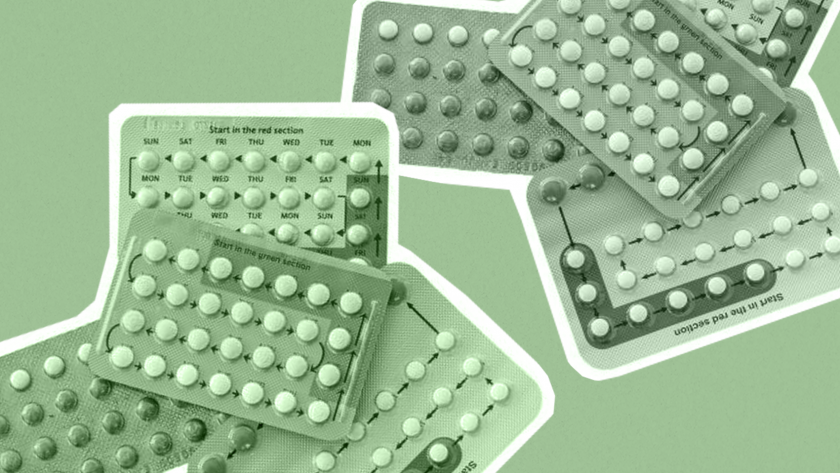
You may have heard that ‘it’s a good idea to give your body a break from the Pill’.
Actually, no – you don’t have to! It’s a myth that you should ‘take a break occasionally’ from the combined oral contraceptive pill (the Pill).
In fact, stopping and starting the pill repeatedly could do your health more harm than good.
What is the Pill?
The Pill is a form of oral contraception. Different types of the Pill contain different doses of oestrogen and progestogen. It can be used to prevent pregnancy, or for other reasons such as to control bleeding or improve acne.
The Pill works as a method of contraception by stopping the release of an egg by the ovary (ovulation) and by making the mucus (sticky fluid) at the opening of the uterus thicker so sperm can’t get through.
The Pill is safe for most people and has been studied very thoroughly over a long period of time.
Is a withdrawal bleed a period?
Most Pill types come in a packet of 28 pills, including at least 21 active (hormone) pills and up to 7 days of inactive (non-hormone or ’sugar’) pills.
A ‘withdrawal bleed’ usually occurs when you take the inactive pills. This bleed is usually a bit lighter than a normal period and technically isn’t a ‘true’ period because it is due to the hormones in the Pill instead of your body’s natural hormones.
Why don’t you need to take a break from the Pill?
There is no benefit in ‘taking a break’ from the Pill. As we will discuss below, stopping and starting the Pill can actually be risky.
Firstly, stopping and starting the Pill can dramatically increase the risk of an unintended pregnancy.
Studies have shown that some people who use the Pill worry about a ‘build-up of hormones if they use hormonal contraception’ [1]. This sort of misinformation has led to the idea that it’s a good idea to take a break from the Pill. Stories in the media have also created unnecessary fear and anxiety around continuous (non-stop) use of the Pill. In fact, there is no such thing as a ‘build-up’ of hormones from the Pill. It can be safely taken continuously for many years or even decades.
All medications have some possible side effects, and the Pill is no different. When taking the Pill, some people may experience side effects such as breast tenderness, bloating or headaches. If they do occur, these side effects can happen even if you’ve only been taking the Pill for a short time and are not related to continuous/non-stop use of the Pill. Other people don’t experience any significant side effects when taking the Pill.
There is a possible risk of a blood clot (venous thromboembolism/VTE) when taking the Pill, but it’s important to remember that for most people this risk is very low. However, the risk of a blood clot is higher in the months immediately after starting or restarting the Pill after a break of at least 1 month. This is a safety concern and is one reason why the Faculty of Sexual and Reproductive Healthcare (FSRH) discourages starting and stopping the Pill repeatedly.
Stopping and starting the pill can also cause changes to your bleeding pattern, which can be inconvenient and troublesome.
Dr Hannah Sexton (GP), says that it’s important to remember that the best form of contraception is the method that works best for you. “If you are comfortable using the Pill and it is working well for you, there is no need to take a break.”
“However, the Pill may not be the method that suits you best. There are other contraception options available which are longer-acting and more reliable than the Pill, with other health benefits. It’s a good idea to speak to a doctor if you would like to try a different method of contraception” says Dr Sexton.
Can I skip the inactive pills (‘sugar pills’)? How long for?
The inactive pills (non-hormonal/’sugar pills’) are not actually necessary for the contraceptive effect of the Pill. Their main purpose is to help maintain a daily routine and to cause a withdrawal bleed which mimics the natural menstrual cycle (period).
It’s very safe to skip the inactive/non-hormonal/sugar pills and start your next pack of active/hormone pills immediately. People will often skip the inactive pills to avoid having a withdrawal bleed altogether. Continuously taking the active/hormone tablets means you can reduce the number of periods you have each year.
Want to learn more about the history of why there’s a withdrawal bleed? Learn more: The way you take the contraceptive pill has more to do with the Pope than your health (ABC News)
Will continuous/non-stop use of the Pill impact your fertility (ability to get pregnant)?
A common concern for people who take the Pill is that it will impact their fertility (ability to get pregnant) in the long term.
There is no negative impact on a person’s fertility after they stop taking the Pill, regardless of how long a person has been taking it [2] [3]. It is easily reversible and has no effect on future fertility.
It’s important to remember that there are many things that can impact your fertility, but your fertility will quickly return to what is normal for you when you stop taking the Pill.
Want to know more?
If you’d like more information you can speak to SHINE SA’s Sexual Healthline or contact a doctor/health service.
Learn more about The Pill (Combined Oral Contraceptive Pill).
References
[1] Should women take a break from the pill?, News, La Trobe University
[2] FSRH Guideline Combined Hormonal Contraception
[3] Return of fertility after discontinuation of contraception: a systematic review and meta-analysis – PMC (nih.gov)









